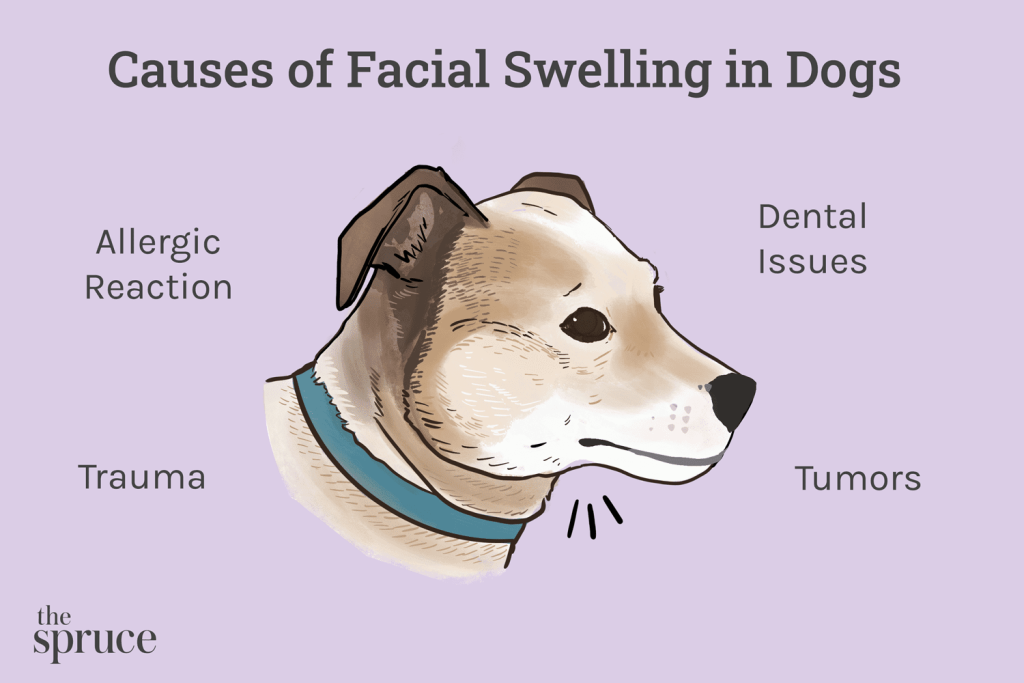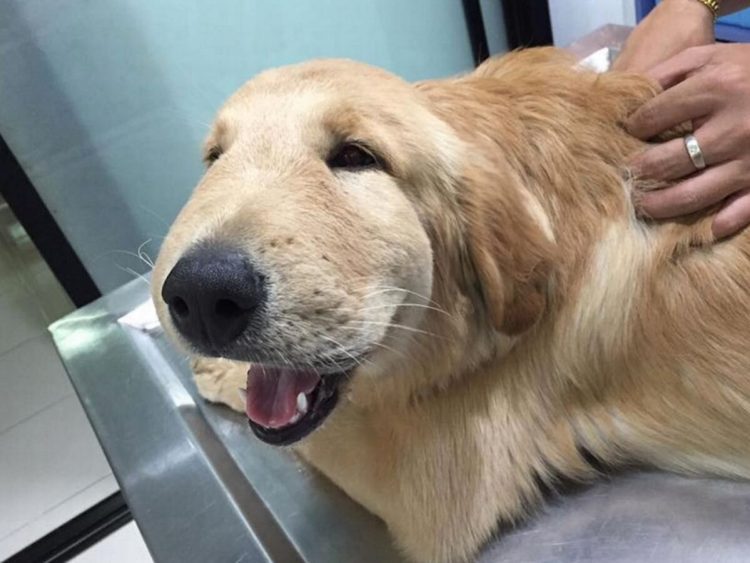Understanding the Swollen Mouth of Dogs
Allergy as a Possible Cause
When dogs are out for a walk, they might love to play in bushes, grass, or among flowers. They have a tendency to smell, lick, and even taste everything around them. These places are not only hiding numerous eggs of insects but also many plants and pollens. When these substances stick to a dog’s mouth or are licked by the dog, they can trigger an allergic reaction, resulting in a swollen mouth. In such a situation, you should take the dog to a pet hospital to get special ointment for application to prevent the symptoms from worsening. Additionally, it’s necessary to keep the dog’s mouth clean and keep it away from the allergens.
Food Poisoning as a Culprit
If a dog’s mouth is swollen and it’s drooling with redness, it’s mostly due to food poisoning. Check if the dog has stolen some pungent food or accidentally eaten plants or chemical substances. It’s recommended to rush the dog to the hospital for detoxification treatment. If the hospital is far away, you can feed the dog diluted soapy water to induce vomiting and at the same time, give it a large amount of water to dilute the toxins in its body and assist in excretion. After the emergency treatment, it’s best to have a veterinarian check if there’s any danger.

Trauma – induced Swelling
A dog’s mouth swelling might also be caused by accidentally bumping its mouth during play. Usually, there will be pain when touching the swollen part. In this case, generally no special treatment is required as the swelling will usually subside naturally. You can also use a towel – wrapped ice pack to apply ice to the dog’s mouth to help reduce the swelling.
Bee Stings and Other External Attacks
Dogs are prone to bee attacks when they are out playing. Some pet owners even said that when they took their dogs to the park, they found snakes. The dogs, fearless, went forward to bite and ended up being attacked by the snakes instead. In these cases, medical attention is also needed. If a dog is stung by a bee, the bee’s stinger usually remains in the dog’s skin, requiring disinfection treatment. In severe cases, an anti – inflammatory injection might be needed to avoid accidents such as shock or hives.























































